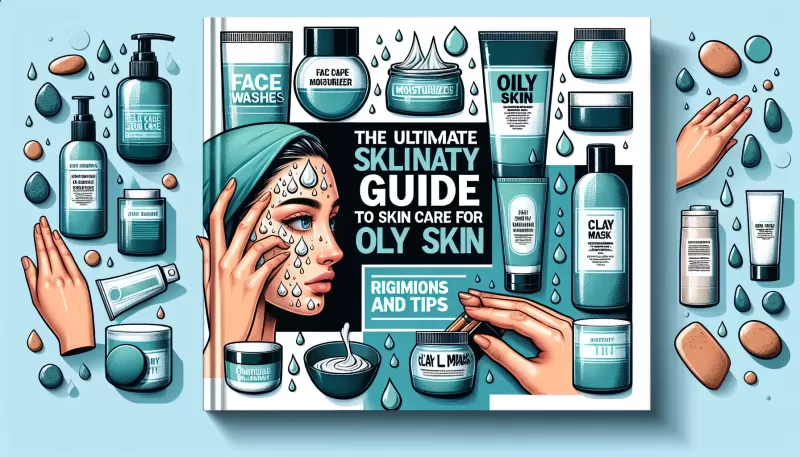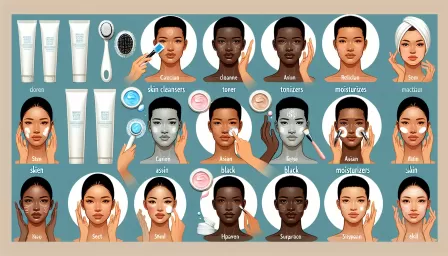The Ultimate Guide to Skin Care for Oily Skin: Regimens and Tips

Discover expert advice and effective regimens for managing oily skin, improving your complexion and boosting your skin health.
Oily skin can be a challenging skin type to manage, but with the right skin care regimen and tips, you can improve your skin's appearance and health significantly. This guide provides a comprehensive approach to caring for oily skin, offering expert advice and practical solutions tailored to this unique skin type.
Understanding Oily Skin
Oily skin is characterized by an excess of sebum, the natural oil produced by the sebaceous glands in the skin. While sebum is essential for keeping the skin hydrated and protected, too much can lead to a shiny complexion, clogged pores, and acne outbreaks. Oily skin can be the result of genetic factors, hormonal changes, diet, and environmental factors.
Daily Skin Care Regimen for Oily Skin
Maintaining a consistent skin care routine is crucial for managing oily skin. The goal is to control sebum production without stripping the skin of its natural oils, which can trigger increased oil production. Here’s a basic daily skincare regimen tailored for oily skin:
Morning Routine
- Gentle Cleansing: Start your day with a gentle, foaming cleanser designed for oily skin to remove excess oil and impurities without over-drying.
- Toning: Use an alcohol-free toner to help restore the skin’s pH balance and reduce the appearance of pores.
- Moisturizing: Opt for a lightweight, oil-free moisturizer to hydrate the skin and protect against environmental damage.
- Sun Protection: Apply a broad-spectrum sunscreen with at least SPF 30 to protect your skin from harmful UV rays. Look for oil-free and non-comedogenic formulas.
Evening Routine
- Double Cleansing: Begin with an oil-based cleanser to dissolve makeup and sunscreen, followed by a water-based cleanser to remove any remaining impurities.
- Exfoliating: Incorporate an exfoliant with salicylic acid or glycolic acid 2-3 times a week to unclog pores and remove dead skin cells.
- Moisturizing: Use an oil-free or non-comedogenic night cream to nourish and repair the skin overnight.
Additional Skin Care Tips for Oily Skin
Beyond your daily skin care regimen, consider these extra tips to manage oily skin effectively:
- Blotting Papers: Keep blotting papers handy to gently dab away excess oil during the day without stripping moisture from your skin.
- Clay Masks: Use a clay mask once a week to absorb excess oil and draw out impurities from the pores.
- Hydration: Drink plenty of water throughout the day to hydrate your skin from the inside out.
- Healthy Diet: Focus on a balanced diet rich in fruits, vegetables, and whole grains to support skin health.
- Avoid Touching Your Face: Resist the urge to touch or pick at your skin, which can transfer bacteria and lead to breakouts.
Ingredients to Look for and Avoid
When choosing skincare products for oily skin, it’s important to be mindful of the ingredients. Here are some to look for and avoid:
Beneficial Ingredients:
- Salicylic Acid: Helps clear pores and reduce acne.
- Niacinamide: Regulates oil production and minimizes pores.
- Hydroxy Acids: Exfoliate the skin and promote cell turnover.
- Zinc: Reduces inflammation and regulates sebum production.
Ingredients to Avoid:
- Heavy Oils: Such as coconut oil, which can clog pores and exacerbate oiliness.
- Alcohol-Based Products: Can strip the skin of its natural oils, leading to increased oil production.
Conclusion
Managing oily skin requires a dedicated and consistent skin care routine, along with a mindful approach to the products you use and your lifestyle choices. By incorporating the regimen and tips outlined in this guide, you can achieve a balanced, healthy complexion and minimize the challenges associated with oily skin. Remember, the most effective skin care routine is one that is tailored to your unique skin needs and concerns.



























